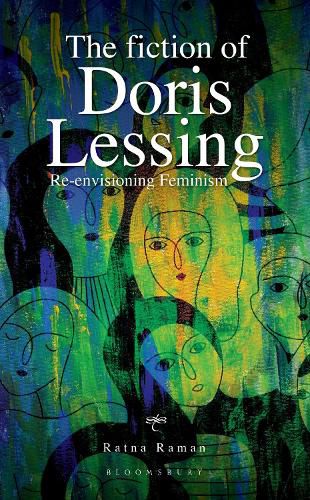Readings Newsletter
Become a Readings Member to make your shopping experience even easier.
Sign in or sign up for free!
You’re not far away from qualifying for FREE standard shipping within Australia
You’ve qualified for FREE standard shipping within Australia
The cart is loading…






Doris Lessing (1919-2013), a prolific contemporary author, was awarded the Nobel Prize in Literature in 2007 for her life work. Examining five decades of Lessing’s unique life, narrative strategies, and the literary traditions that she drew upon and improvised, this book highlights her extraordinary significance as a writer of our times and for our times. Lessing’s fiction and non-fiction provide a seminal understanding of the key issues that shaped the twentieth century.
Autodidactic and keenly interested in the world around her, Lessing flagged the problems of racism in Africa; the inequity of class in modern England; the limitations of white, middle-class women’s movements that overlooked the rights of women across race and class; the marginalisation of individuals; the horror of nuclear war and the need for disarmament; and the hazardous global expansion in the face of unrelenting technological progress. Further, she raised the concern of the atomisation of modern families, violence and the urgent need for alternate modes of viewing, voicing anxieties decades ahead of other contemporary writers.
Making futuristic projections through innumerable genres of writing, such as realistic narratives, memoirs, diaries and science fiction, Lessing examines myth, psychoanalysis and Marxist perspectives, engaging with a gamut of experiences that have defined modernity, and sets up feminist blueprints that challenge atrophying patriarchal hegemonies.
$9.00 standard shipping within Australia
FREE standard shipping within Australia for orders over $100.00
Express & International shipping calculated at checkout
Doris Lessing (1919-2013), a prolific contemporary author, was awarded the Nobel Prize in Literature in 2007 for her life work. Examining five decades of Lessing’s unique life, narrative strategies, and the literary traditions that she drew upon and improvised, this book highlights her extraordinary significance as a writer of our times and for our times. Lessing’s fiction and non-fiction provide a seminal understanding of the key issues that shaped the twentieth century.
Autodidactic and keenly interested in the world around her, Lessing flagged the problems of racism in Africa; the inequity of class in modern England; the limitations of white, middle-class women’s movements that overlooked the rights of women across race and class; the marginalisation of individuals; the horror of nuclear war and the need for disarmament; and the hazardous global expansion in the face of unrelenting technological progress. Further, she raised the concern of the atomisation of modern families, violence and the urgent need for alternate modes of viewing, voicing anxieties decades ahead of other contemporary writers.
Making futuristic projections through innumerable genres of writing, such as realistic narratives, memoirs, diaries and science fiction, Lessing examines myth, psychoanalysis and Marxist perspectives, engaging with a gamut of experiences that have defined modernity, and sets up feminist blueprints that challenge atrophying patriarchal hegemonies.